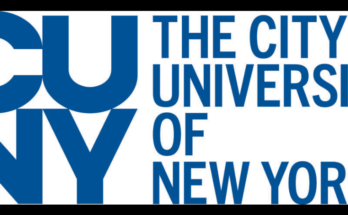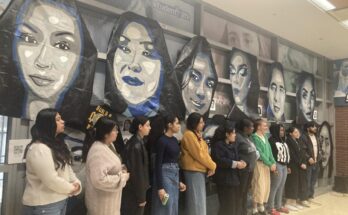By Priscilla Perez
Published: November 12, 2014
Skeery Jones , the Executive Producer of the Elvis Duran and the z100 Morning Show, visited Brooklyn College last Tuesday to talk to television and radio majors about internships and job opportunities in the radio field.
Jones spoke to Intro to Radio Production students, a class which is comprised of juniors and seniors of the department. Professor Miguel Macias teaches the class and introduces students to writing, developing, and producing radio content using the most up-to-date software and equipment.
Jones gave detailed advice on how to face the radio job market and how one should build their brand for future internship or job opportunities. Still “humbled” when returning to his alma mater, Jones encouraged students to continue their path and pursue their interests in the field.
“I think you guys are starting on a journey that is fascinating if you follow through with it,” Jones said.
“I’m done this semester, in December and I graduate in February, so just to hear [about] what I have to do, how I have to go about it, how to present myself, that was very knowledgeable,” senior Maygan McKinson said. “I’m excited and I need to know what I have to do in the real world. So I was really thankful that they were able to come and talk to us.”
Senior Veronica Pena has been a long-time fan of the Elvis Duran and the Morning Show, and said she was grateful she could speak to Jones and Scalzo after the class ended.
“This is a show I listen to religiously on my commute to my daughters’ school and school here,” Pena said. “The fact that they’re alumni and they came out to us was even more beneficial to me because it shows that you can start here at Brooklyn College and you don’t need an Ivy League degree in order to excel in production.”
A Brooklyn College alumnus of 1996, Jones, whose real name is Anthony Skeery, graduated as a TV and radio major and was the general manager of (then BCR), the school’s student-run radio station at the time. Born and raised in Brooklyn, he also graduated from Edward R. Murrow High School and Mark Twain Junior High School in Coney Island.
Jones interned for z100 in his junior year in 1995, and almost 20 years later he has stayed with the station, owned by iHeartMedia, formerly called Clear Channel Communications.
He works alongside Elvis Duran and the cast, including Danielle Monaro, Greg “T,”and Froggy and Garrett, just to name a few, on Elvis Duran and the Morning Show. The show airs throughout the United States through the station’s 77 affiliates, including stations in Philadelphia, Miami, St. Louis, and Austin. The show is also streamed through iHeartRadio, the digital portion of Clear Channel that plays content from various stations throughout the day.
Ronnie Scalzo, producer of the show, joined the discussion. The Brooklyn College alumnus of 1996 also runs the Ryan Seacrest Show and works closely with the station’s affiliates, all from location in New York City. Scalzo was the program director of WBCR and got a job at z100 not too long after he graduated in 1997.
Jones and Scalzo have been friends and colleagues since their time in junior high school, working together at WBCR and eventually at the Elvis Duran and the z100 Morning Show.
“To this day, Ronnie is still with me,” Jones said. “We’ve been following each other our whole lives. Ronnie has worn several hats in the 17 years he’s been working at z100.”
The two worked at the school station when it was located in James Hall without faculty supervision. Jones described the experience as a “rough place,” as they tried to expand its presence and technological availability on campus. The Brooklyn College Radio Station has been in Whitehead Hall since new facilities were built in 2004.
“I want to say you guys are very lucky, because we didn’t have the tools you guys have today. We were at Brooklyn College at a time when WBCR was in James Hall, completely student-run, and there was no faculty involvement,” Jones said. “And I can tell you that, [with] what you guys have today, you guys are so lucky that it moved to Whitehead; the TV/radio department got involved and whoever it was that granted all that money for this equipment… Make use of everything around you.”
In adding to the television and radio students’ accessibility to equipment and software, including Pro Tools and Final Cut Pro, Jones described the benefits of attending school in the top radio market.
“You’re lucky enough to be going to school in the largest market in the world; this is market one,” Jones said. “So you all have an advantage over your friends that went away to school like someone who went away to Binghamton, or someone who went away in Syracuse. They’re going to come back at the end of their four or five years, whatever they spent up in school, and they’re going to be like ‘oh, now I’m moving back home, now what? Where am I going from here?’”
Jones believes that working in the New York market is an opportunity for students in or around their junior year to begin to apply for internships. He suggested to the radio production students that they should work at more than one internship during their undergraduate career, in multiple departments, in order to get a true taste of businesses that they may want to work in long-term.
“The fact that you’re here and you’ve got the city right here, and the biggest entertainment, I would highly advise that in your junior year, get started. Not just take one internship, take two, three,” he adds. “You might find half way through the internship this is not for you—‘I don’t want to do this part of the industry,’—and that’s great because you have other forthcoming semesters to actually try something else.”
Jones and Scalzo spoke about the various departments that students interning or soon graduating may want to look into, including sales, promotions, production, marketing, web, social media, video, and engineering.
“Content is key; content is the biggest thing about radio right now, and most people live in front of these computers all day. That’s the way people operate in the 21st century,” Scalzo added. “So it goes way beyond turning on a radio and listening with your ears. You’re now watching with your eyes, you’re going to concerts, you’re going to events, and that’s the radio umbrella.”
The pair assured students that internships and job opportunities are going well beyond the scope of traditional radio. For example, Scalzo’s interns currently work on Vine videos for the Elvis Duran and the Morning Show account.
Jones stressed the evolving ways that radio reaches its audiences.
“The first question I want to get out of the way is, [sic] ‘is radio, is broadcasting, is it dying?’ and the answer is no,” he said. “The way the content is delivered is changing; that’s what we like to say. So whether you get it on the radio, whether you’re listening to satellite, your Pandora, your Spotify, or whether you have it on your phone like iHeartRadio…the product is still there.”
“There’s always going to be a need for a content provider. So don’t ever think that this—what you guys are doing—is obsolete,” he added. “Because I know there are rumors out there that people are saying that.”
Scalzo agreed and later added that radio is a widening opportunity for those who don’t have the chance to be behind the microphone.
“By insisting that radio isn’t dying,” Scalzo said, “It has become something different, and by becoming something different, it potentially opens up a lot of doors for younger people to get involved, to get a radio that we didn’t grow up with.”
“The advice that they gave us could really propel us forward because we are in this radio production class,” senior Stephen Onolfi said, “Even if you have an internship now, it’s [about] how to grow within your own internship. Like [for] me, personally, it’s not just about going there and doing the work, networking, meet[ing] anyone you possibly can in any department in the radio station. It’s also how to prepare, and how to really exceed and push yourself forward.”



